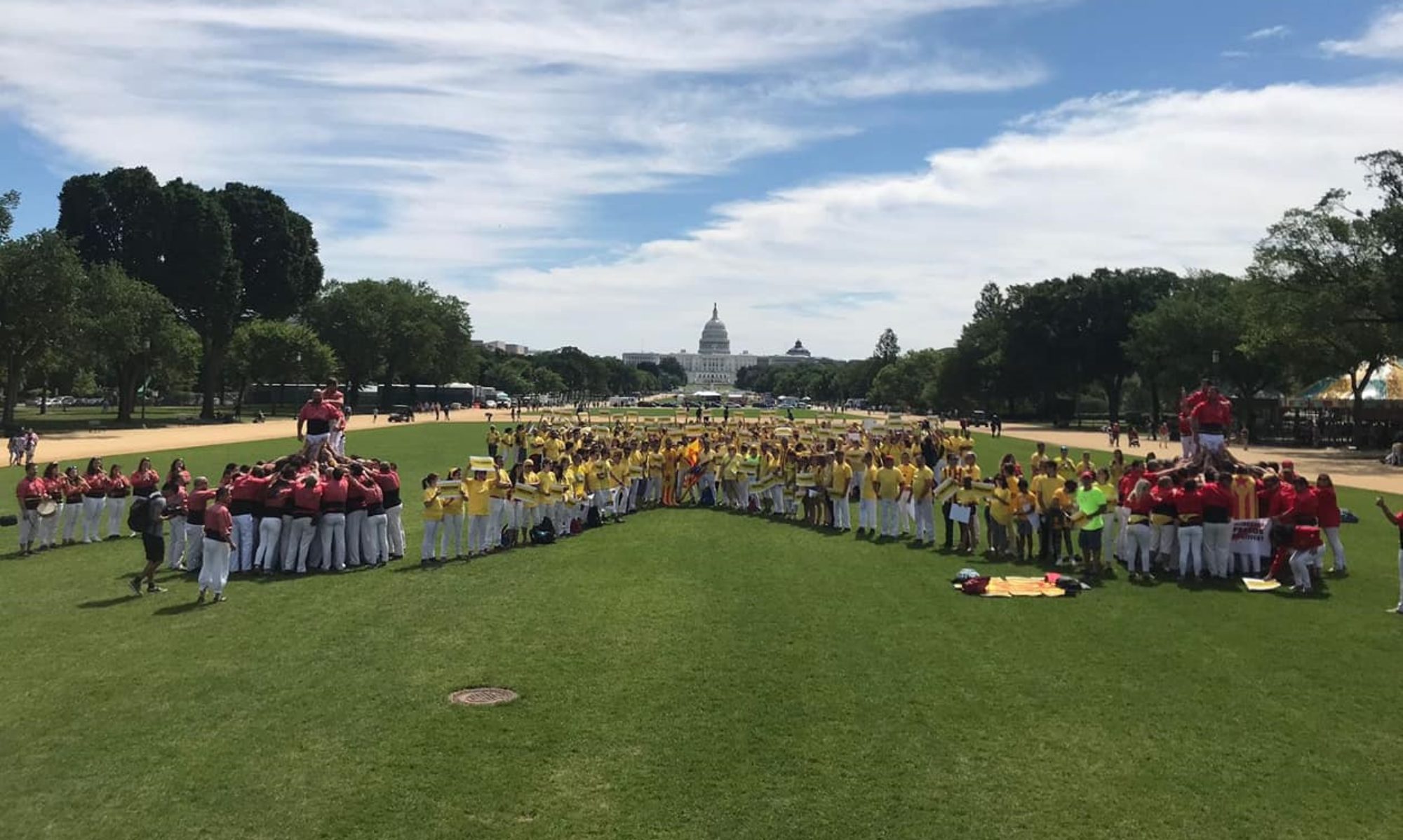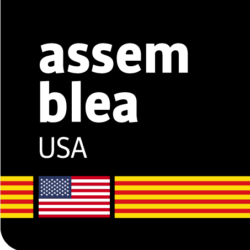The case goes beyond the purview of Spain’s Electoral Commission and is the umpteenth attempt by the Spanish authorities to suppress the Catalan national minority
Spain’s Supreme Court has confirmed the decision of the Spanish Higher Court of Justice in Catalonia to oust Catalan President Quim Torra for having hung a banner outside the Catalan government headquarters in support of Catalan political prisoners during the most recent election campaign. Three out of the five magistrates that issued the ruling were also members of the court in the 2019 trial against the Catalan pro-independence civic and political leaders. The removal of President Torra comes amid a dramatic increase of Covid 19 cases, leaving the Catalan people without the public health leader who has managed the pandemic regulations since its outbreak in early February.
The Catalan National Assembly denounces that President Torra’s ousting is yet another instance of the Spanish authorities’ abuse of the Catalan national minority, and of their disregard for international treaties such as the International Covenant on Civil and Political Rights. The Spanish authorities cannot go on demanding compliance with the rule of law while persecuting and imprisoning democratically elected representatives. Mr. Torra’s case is only one in a long list of Catalan elected leaders prosecuted by the Spanish justice system, a violation that must be recognized and amended.
In March 2020, the United Nations Rapporteur on minority issues, Fernand de Varennes, denounced that the judicial persecution of the Catalan pro-independence leaders, “aimed to intimidate them because of their political views”, and added that “Spain has a legal obligation to protect the rights of the Catalan minority, especially with regard to freedom of expression, including political expression, as well as freedom of assembly and association, fundamental rights and participation in public life.” His voice joined those of the Council of Europe, the United Nations Working Group on Arbitrary Detentions and organizations such as Amnesty International, Human Rights Watch and the International Commission of Jurists, among others.
A violation of freedom of speech and democratic guarantees
The case began during the general election of April 2019, when the Spanish Electoral Commission considered that symbols of solidarity with Catalonia’s pro-independence leaders in jail—yellow ribbons and banners—displayed on government buildings infringed institutional neutrality. Despite the fact that these symbols had been on display since their imprisonment, they had not been a point of contention up until that time.
President Torra initially refused to remove them, on the basis that the symbols, which denounced the political imprisonment of the civil and political leaders, were within the bounds of freedom of speech. He added that hanging the symbols was a political act, and that therefore he was protected by his immunity as a Member of the Catalan Parliament. Even though he was eventually forced to remove the symbols, the Spanish public prosecutor pushed two lawsuits which ended in the ruling in December 2019 to oust Torra from office for 18 months and a fine of €30.000.
The Spanish Electoral Commission then asked for him to be immediately removed from his position. As a purely administrative body, the Commission had no right to make this demand and, in doing so, committed a breach of democratic guarantees. To remove the President is a right reserved to the Catalan Parliament. This kind of abusive behaviour was reminiscent of the trial against the nine Catalan civic and political leaders who organized a referendum and subsequently spent over two years in pre-trial detention and were sentenced to from 9 to 13 years amidst international outrage. In addition, one of the members of the Spanish Electoral Commission who took part in the decision was a legal expert who also worked for the Spanish nationalist party Ciudadanos, as was revealed afterwards.
In June 2020, the Spanish Supreme Court prohibited the display of ‘unofficial’ flags on public buildings, denying that the decision had anything to do with Mr. Torra’s case. Yet, its political intent relating to the Catalan pro-independence movement is clear. This decision also affects civil rights organizations and groups such as the LGBTI+ community, since the rainbow flag is not considered official.

